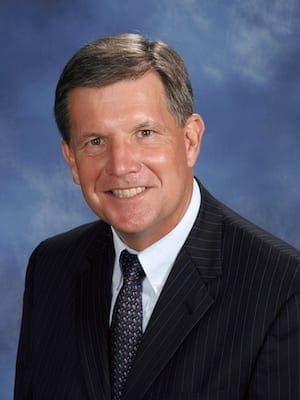Being a pastor is much more than being a preacher.
In fact, many of the most influential pastors in my life have been average preachers, but extraordinary pastors.
And many of the great conference speakers who have encouraged me with their insightful and entertaining perspectives wouldn’t last very long as pastor of a local church. It’s quite a different skill set.
The pastoral calling requires consistency in “being” and “doing.”
Pastoral work is multifaceted. I remember taking a course in pastoral work at New Orleans Baptist Theological Seminary taught by Joe Cothen and Harold Bryson, both of whom were veteran pastors.
They underscored that the information in our textbook was helpful and necessary, but that the real training of pastoral work is learned on the job.
How right they were. I am grateful for the classroom experience that gave me a foundational pastoral theology and a framework for understanding my calling. But pastoral skill is mostly acquired in “the practice of ministry.”
In my 38 years of pastoral experience, I have discovered that incarnational pastoral work includes at least five areas of ministry:
1. Pastoral care.
My mentors instilled in me the perspective: “They will never care how much you know until they know how much you care.”
Pastoral care involves multiple ways of caring for individuals in your parish or congregation, including hospital visitation, bereavement ministry and pastoral counseling.
2. Pastoral preaching.
There is a lot written about sermon typology. Is the sermon topical or exegetical, deductive or inductive, evangelistic or equipping?
Pastoral preaching can include any or all of the above because pastoral preaching isn’t focused on a particular style but a specific, unique audience.
Preaching isn’t a “one size fits all” endeavor. Different than conference speakers or vocational evangelists, pastors preach out of and into the context of a unique local congregation.
My friend, Bill White, pastor of Christ Journey Church in Coral Gables, Florida, insists that as pastors “we are called to exegete the community as we exegete the Scriptures.”
3. Pastoral theology.
Fisher Humphreys reminds us that theology is “thinking about God.” So, pastoral theology for me is first, “thinking about what God is doing in the congregation I am called to serve” and then connecting that with “what God is doing in the global church.”
4. Pastoral leadership.
A lot of what is written about leadership in the marketplace involves executive leadership that is hierarchical, autocratic or both. A lot of what churches expect from a pastor is democratic leadership wherein a pastor is guided by the will of the majority.
I would contend that pastoral leadership is servant leadership. It requires a stewardship of wisdom and influence.
A pastor is called to guide, shepherd and protect the congregation, which means pastoral leadership is a calling to look out for the common good of the congregation, especially when the best interest of the congregation is in conflict with the pastor’s personal preference or the majority of the congregation’s preference.
5. Pastoral intelligence.
This is not related to the pastor’s IQ or academic prowess. Rather, the term refers to the accumulated knowledge and insight of the pastor about the interpersonal dynamics, historical influences, community demographics and individual and corporate character represented within the congregation.
One of the benefits of a long-term pastorate is that the volume of pastoral intelligence can be preserved and leveraged for kingdom purposes.
When a pastor departs, the new pastor must begin acquiring a new cache of pastoral data.
Consistency in “being” and “doing” means I am a pastor whether on campus or off campus and whether “on the clock” or “off the clock.”
Everything about my life bears witness to my being a pastor. The way I conduct myself at a sporting event, the way I manage my finances and the way I treat the cashier in the department store.
To be incarnational – to fully embody the role of pastor – I must embrace my calling as a summons to live a pastoral life, a life that equips me to be the shepherd of a congregation, rather than the CEO of an institution.
Barry Howard is a retired pastor and leadership coach who resides in Pensacola, Florida. His writings also appear on his blog, Barry’s Notes, and you can follow him on Twitter @BarrysNotes.
Pastor at the Wieuca Road Baptist Church in Atlanta. He also serves as a leadership coach and columnist for the Center for Healthy Churches. He and his wife, Amanda, live in Brookhaven, Georgia.

